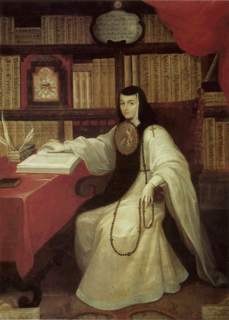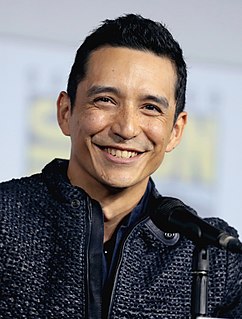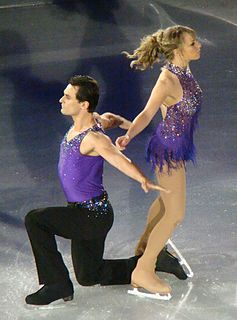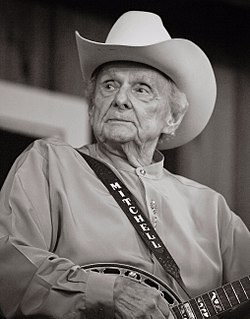A Quote by Henry Selick
My mother is a huge fan of my work. I told her about 'Coraline' long before the film was made, and she got the book and read it. She reminded me that when I was about five years old, I used to sit in the kitchen for hours and talk about my 'other' family in Africa, my other mother and father. I had totally forgotten that.
Related Quotes
My mother lived her life through movies and books - she read everything there was to read. And she read to me every night. I never went to sleep without her reading to me. And she fantasized about the book and she would talk about it, the place, and you would think that after she read the book and after she told you stories about it, that she had actually been there. I learned about story from her, and I learned the value of a great story, and the value of great characters.
The idea of the book ["The Japanese Lover"] came in a conversation that I had with a friend walking in the streets of New York. We were talking about our mothers, and I was telling her how old my mother was, and she was telling me about her mother. Her mother was Jewish, and she said that she was in a retirement home and that she had had a friend for 40 years that was a Japanese gardener. This person had been very important in my friend's upbringing.
You know that I love you." And despite herself, Coraline nodded. It was true. The other mother loved her. But she loved Coraline as a miser loves money, or a dragon loves its gold. In the other mother's button eyes, Coraline knew that she was a possession, nothing more. A tolerated pet, whose behavior was no longer amusing.
You had every right to be. He raised his eyes to look at her and she was suddenly and strangely reminded of being four years old at the beach, crying when the wind came up and blew away the castle she had made. Her mother had told her she could make another one if she liked, but it hadn't stopped her crying because what she had thought was permanent was not permanent after all, but only made out of sand that vanished at the touch of wind and water.
I was not yet three years old when my mother determined to send one of my elder sisters to learn to read at a school for girls we call the Amigas. Affection, and mischief, caused me to follow her, and when I observed how she was being taught her lessons I was so inflamed with the desire to know how to read, that deceiving - for so I knew it to be - the mistress, I told her that my mother had meant for me to have lessons too. ... I learned so quickly that before my mother knew of it I could already read.
My mother had been an incredibly bright kid but her family couldn't afford for her to stay in education. So she lived through me. She was a very remarkable woman and I owe a huge debt to her. She was unashamed about delighting in the fact that I was intelligent, and she drove and pushed me. She was also completely indifferent to popularity.
I talked to my mother about it a lot. I asked her what it was like to grow up in New York and Harlem in the 1920s and 1930s, and I asked her about a woman leaving her husband. I asked her about how she would feel about that woman, and my mother grew up in the Church Of God In Christ, and she told me that the woman might be isolated because the other women thought she might go and come after their husbands. That's how they thought then.
In my earliest of years, my mother was a huge force in my life. She was for all intents and purposes, a single parent. My father had abandoned us. He was an alcoholic and a physical abuser. My mother lived through that tyranny and made her living as a domestic worker. She was uneducated but she brought high principles and decent values into our existence, and she set lofty goals for herself and for her children. We were forever inspired by her strength and by her resistance to racism and to fascism.
...fact was she knew more about them than she knew about herself, having never had the map to discover what she was like. Could she sing? (Was it nice to hear when she did?) Was she pretty? Was she a good friend? Could she have been a loving mother? A faithful wife? Have I got a sister and does she favor me? If my mother knew me would she like me? (140)
My mother never talked about sex. I was on the Dr. Ruth [ Westheimer] show once - this is years and years and years ago - and it was her Mother's Day show. And I didn't know what we were going to talk about but what she decided we were going to talk about was female masturbation. My mother had invited all her girlfriends. And you know these were all women in their late seventy's maybe they were in their eighty's by then and then and they were horrified because Dr Ruth had a little she had a little chart up you know "female masturbation".
My first banjo? My mother's sister, my aunt, lived about a mile from where we did, and she raised some hogs. And she had - her - the hog - the mother - they called the mother a sow - of a hog. And she had some pigs. Well, the pigs were real pretty, and I was going to high school and I was taking agriculture in school. And I sort of got a notion that I'd like to do that, raise some hogs. And so my aunt had this old banjo, and my mother told me, said, which do you want, the pig or a banjo? And each one of them's $5 each. I said, I'll just take the banjo.





































